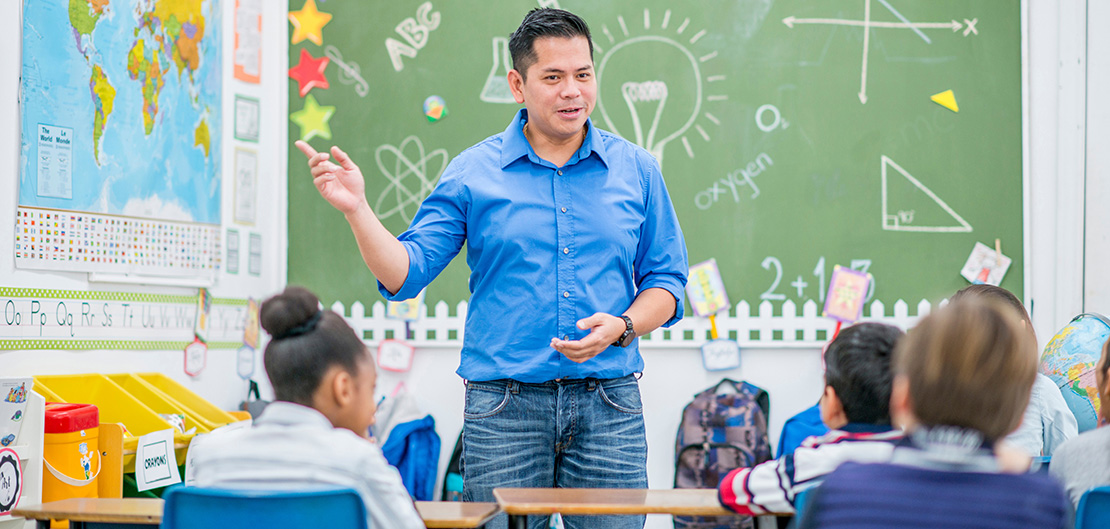Educating Classmates of Students with Cancer

Educating a child’s classmates about cancer can help answer questions and make the child feel more comfortable with their peers. When educating the classmates of students with cancer, teachers should consider the age of the students and how students may respond to the information. Sharing information about cancer should be done with permission from parents and may be facilitated by an educational consultant, social worker, or child life therapist at the child’s medical center. Otherwise, information can be given by a teacher, school counselor, or school nurse at the child’s school.
Educating the classmates of a child or teen with cancer can have many benefits that help the child’s transition back to school.
- Answers questions about diagnoses, challenges, and accommodations
- Helps students become more comfortable around a child with cancer
- Makes a child with cancer feel more comfortable
- Provides suggestions to students on how to be a supportive and compassionate friend
Different teaching aids can be used to educate children and teens of different age levels. For example, for younger children, the following teaching aids can be used:
- Puppets
- Picture books or other children's books
- Toy doctor kits (for a play demonstration)
- Videos
Children and teens at school who have a friend or classmate that has been diagnosed with pediatric cancer may want to do things to show their care and support for them while they are unable to be at school. Educators can support the student with cancer and their classmates through these activities:
- Staying in contact with the patient throughout treatment
- Sending notes or cards from the student’s teachers and classmates
- Making a video of what is going on in the classroom
- Making posters and drawing pictures to decorate the patient's room
- Allowing visits from a health care professional to help students understand cancer and its impacts on their classmates
- Using social media and video tools to help a cancer patient stay connected to the classroom and group activities
- Sharing educational resources and platforms (i.e. BrainPop, Kahoot, USATestprep, Khan Academy, etc.) that show study topics, special activities, assignments, and test schedules
For more information: Children's Oncology Group
Resources
View cancer-focused education lessons and activities for educators, parents, and caregivers that provide lessons for K-12 students that discuss cancer with students in an age-appropriate way.
View considerations for creating and preparing an effective classroom presentation about pediatric cancer.
Educators can view this classroom presentation on how to talk to children about their classmate with cancer.
Educators can view a panel discussion for tips on transitioning their student with cancer back to school and assisting in their learning experience.
Hope Cam helps kids stay connected with their classmates as a way of reducing isolation and depression and improving support during treatment. View more information at the Hope Cam website.
Find organizations and support services for children and teens diagnosed with cancer using the Pediatric Cancer Resource Guide from the South Carolina Cancer Alliance.
[1] Alma, Morgan. “Childhood Cancer Education Toolkit Educator Section.” ASK Childhood Cancer Foundation. Accessed December 5, 2023. https://www.askccf.org/_files/ugd/44e813_74672b9bfdf64b0d95f339b5cbf2829e.pdf.
[2] “Explaining Cancer to Students.” Leukemia & Lymphoma Society. Accessed December 5, 2023. https://www.lls.org/professional-education-webcasts/explaining-cancer-students-classroom-presentation.
[3] “Livestrong at School: Education, activities and support for kids in grades K-12.” Livestrong. Accessed December 24, 2023. https://www.livestrong.org/school.
[4] “Stay Connected to Classmates during Cancer Treatment.” St. Jude Together. Accessed January 2, 2023. https://together.stjude.org/en-us/for-families/school/stay-connected-to-classmates.html#:~:text=Social%20media%20%E2%80%93%20Instagram%2C%20Snapchat%2C,the%20classroom%20and%20group%20activities.
[5] “School Support.” Children’s Oncology Group. Accessed January 2, 2024. https://childrensoncologygroup.org/school-support.
[6] “Videos for School Personnel.” Leukemia & Lymphoma Society. Accessed January 2, 2024. https://www.lls.org/professional-education-webcasts/videos-school-personnel.